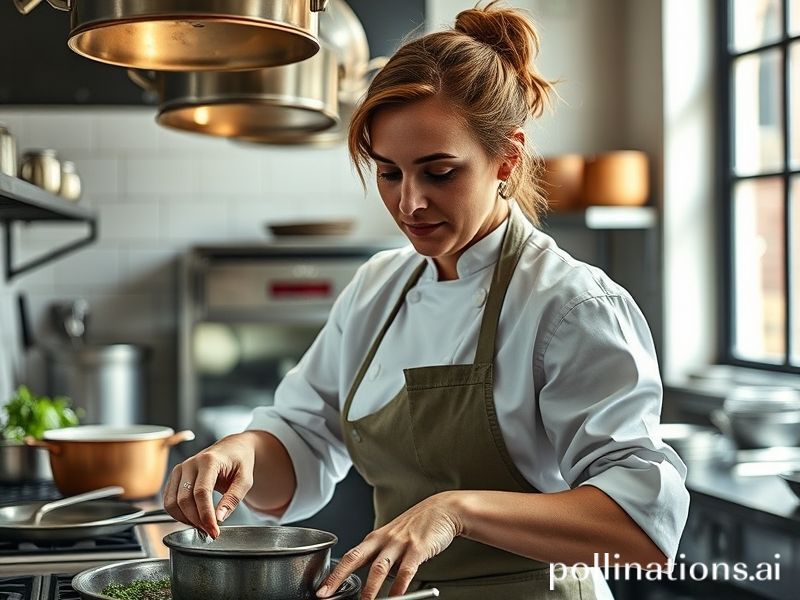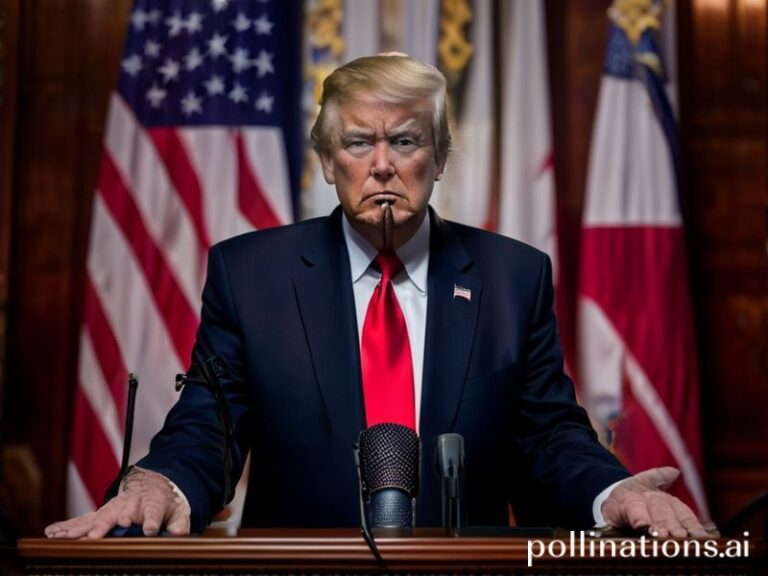Anna Haugh Serves Ireland by the Ounce: How One Chef Became Global Soft Power in an Apron
Anna Haugh, the Dublin-born chef currently plating polished Irish nostalgia on London’s glossy Myrtle Avenue, has become the latest proof that national identity is now just another garnish—artfully tweezed, Instagram-filtered, and priced by the ounce. From São Paulo to Seoul, menus are littered with “modern Irish” the way diplomatic communiqués are littered with the word “concern”: ubiquitous, toothless, and profitable. Haugh’s trajectory—Apprenticeship under Darina Allen, bruising tours in the testosterone coliseums of Phil Howard and Gordon Ramsay, and now a primetime seat on MasterChef—is less a personal triumph than a case study in how the global elite repackage heritage for export.
Consider the macro optics. While Brexit Britain keeps trying to renegotiate its own stomach, Haugh sells it soda-bread consommé and Guinness treacle as if the Empire had merely misplaced its seasoning. In Brussels, bureaucrats still arguing over sausage composition quotas pause only to book tables at her restaurant, proving that nothing lubricates cross-border trade like a well-timed parsley root purée. Meanwhile, in Dubai, investors who have never seen rain pitch tents at “authentic” Irish pop-ups, because nothing says cultural fidelity like a tax-free zone and a camel-milk stout reduction.
The wider implication? Nations no longer export raw commodities; they export curated trauma. Haugh’s cooking is trauma with table service—potatoes, evictions, famine, all airbrushed into a £38 main course. It’s the same logic that lets Silicon Valley sell mindfulness apps to sweatshop workers: monetize the wound, garnish with chives. Every time a financier in Singapore photographs her boxty, a smallholding in Leitrim is reimagined as a lifestyle brand.
Yet the joke’s on the financier. Haugh’s food is technically flawless and emotionally evasive, a perfect mirror of the age. She speaks of “honouring mammy’s cooking” while deploying sous-vide baths that cost more than mammy’s entire kitchen. She celebrates Irish produce by shaving it into architectural wisps that could be mistaken for confetti at a hedge-fund divorce party. And still, critics swoon, because nothing flatters a cosmopolitan palate like moral absolution wrapped in lamb-fat caramel.
Globally, this is what soft power looks like when it goes gastro. South Korea flies kimchi to the moon; Mexico patents mezcal terroir; Ireland, via Haugh, weaponizes nostalgia for people who think Joyce is a boutique gin. The menu becomes a passport, the reservation a visa. We are all gastrotourists now, queuing for heritage the way refugees once queued for bread—except our rations come with wine pairings and optional truffle supplement.
Of course, there is real skill involved. Haugh can coax depth from a turnip the way UN envoys extract promises from dictators: impressive, if you ignore the surrounding rot. Her restaurant’s carbon footprint, meanwhile, could power a small Balkan village, but the PR flacks offset it by planting saplings somewhere photogenic. In the end, sustainability is just another amuse-bouche—gone in one bite, forgotten by dessert.
So raise a glass (Irish craft cider, £14) to Anna Haugh: chef, diplomat, inadvertent satirist. She has confirmed what the world suspected—that culture is now a tasting menu, history a digestif, and identity whatever sells the next round. The rest of us? We’re just extras chewing scenery and pretending the foie gras is conscience.







